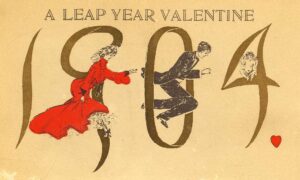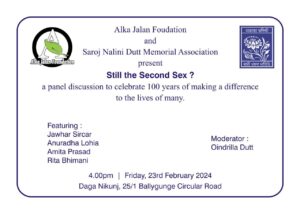2015 is a very important year for women’s human rights
2015 is a very important year for women’s human rights. The international community will celebrate the 20th anniversary of the Beijing Platform for Action (BPfA) and the outcome of the 23th Special Session of the General Assembly entitled: Gender Equality, Development and Peace for the 21st century. The Commission on the Status of Women of the UN will be undertaking the review of progress and obstacles concerning the implementation of the Beijing Platform for Action since 1995.
This is a very significant review in a year in which governments through the UN will be adopting the Post 2015 Sustainable Development Agenda.
Political Declaration on day 1 instead of Agreed Conclusions at the end of session
Women’s NGOs and civil society organizations are experiencing a lot of frustration as the CSW is not going to adopt as usual Agreed Conclusions at the end of the session but instead there will be a Political Declaration adopted on the first day of the session.
The reason given is because high level people such as Presidents, Heads of State, etc. will be present on Day 1 and commitments and a reaffirmation of the BPfA will be on the agenda. Ministers can go home and say that they adopted the Declaration. Women’s groups and networks therefore will not have real quality space and opportunity to contribute to the discussions, to inform the Political Declaration and to bring forward all the extraordinary issues that came out of their regional reviews. Any negotiations must be done before March 9 and on the national level.
The President of NGO/CSW, Geneva Nyaradzayi Gumbonzvanda, sent a letter to the CSW Bureau on the timing of the Adoption of the Declaration, stating that the time is very short for communities to review, consult and send in their recommendation. Further, this simply limits participation to those civil society and women’s networks that have access to internet or other modern forms of communication. This therefore would result in an exclusionary and elitist process that does not take into account the fundamental inequalities that exist in relation to access to information. IAW has submitted amendments to reinforce the language of women’s human rights in the text of the Declaration.
The timing of the Adoption of the Declaration is an expression of the backlash on women’s human rights. It also shows that civil society, and in particular women’s organizations, lack decision making power and cannot influence a process that is geared to the amelioration of their lives.
Civil society is experiencing direct and indirect efforts to limit its influence by different conservative and populist forces that are questioning the principle of equality and gender.
The world has changed dramatically since the Beijing Conference. The growing dominance of finance in the economy and in people’s lives has deepened existing inequalities between countries and within countries and between men and women. In this changing context in which patriarchy still persists and legitimises women’s inferiority and the violation of women’s human rights, women have been disproportionately negatively impacted.
Since 1995 no other World Conference has taken place because Governments are against this due to economic reasons. Some of them are not in favour of women’s human rights. NGOS are also against because they are afraid that the Beijing text would be re-opened and at the end of the day they would find themselves with much less than what has already been achieved.
What has been adopted since 2005 are renewals of commitments of Governments to the Beijing Platform for Action. This is not enough. But 2015 is even worse. The Declaration is a rather watered down text. Although the text will be negotiated until the end of February, I’m not very optimistic about the end result. Moreover women’s organizations seem very discouraged. I am quoting what some of them are saying:
– What is alarming is to re-read the Beijing Platform for Action and note the areas we have actually gone backwards.
– When I read the draft Political declaration on the occasion of the twentieth anniversary of the Fourth World Conference on Women, I was alarmed to see the following in point 8: “to fully realize gender equality, the empowerment of women and the human rights of women and girls by 2030”. That’s 35 years after the 4th World Conference on Women. This is two generations later. An unacceptable timeline for realizing this goal.
– Those women and children who remain in crushing poverty, slavery, violence and in the horrors of war, cannot wait another year, another day, indeed a minute as their very survival is at hand and their human rights diminished by the absurdity of forwarding a deadline of 2030. Setting a goal of 2030 in and of itself is a form of oppression and adherence to gender based inequality.
NGOs want decision making power
Another important issue that has to do with the limited engagement and participation of women’s NGOS in the work of the CSW is the working methods of the CSW. NGOS do not want only dialogue and a chance to have inputs although they are grateful for chances to send written statements, oral statements and meeting with governments. They want to have decision making power as well.
Review of CSW working methods
The Commission on the Status of Women will be reviewing its working methods in its forthcoming 59th Session. The ways for enhancing the impact of its work were recently reviewed in a report of the Secretary-General (E/CN.6/2014/14). It is expected that a Resolution on the working methods of the CSW will be adopted at the CSW 59 by the Commission. The text of the working methods will be negotiated until the end of February.
UN Women is keen that the Commission’s consideration of its working methods are informed by the views of civil society. UN Women has invited civil society to develop key wants/needs and to respond to the document. UN Women has charged NGO CSW/NY with coordinating that document.
The Chair of NGO/CSW NY, Soon-Young Yoon, has written to the Chair of the Bureau of the CSW seeking more participation by NGOs in the Commission’s work. Soon Young is requesting:
– that NGOs be allowed to be observers during the negotiations on the outcome document – whether this be the Agreed Conclusion Declaration or Working Methods document – throughout the process
– that the NGO/CSW committees will take responsibility to select at least two observers from each region based on regional caucuses to attend negotiations.
IAW has elaborated a position paper on the working methods of the CSW putting emphasis on the catalytic role that NGOS could play in monitoring the Commission’s Agreed Conclusions at the national level. NGOS can play an important role in holding national and international leaders accountable for commitments made and results achieved. Civil society should be given access to negotiations to enhance its contribution to the work of the Commission.
IAW is in favour of a resolution as the format to be adopted on the outcome of the negotiations on thematic issues. From an IAW point of view it would be better not to work by consensus because the Agreed Conclusions are necessarily watered down in the process. A resolution would be more action oriented and its format would give an incentive to implement it.
A number of other interesting ideas have been put forward by members of the North America-Europe Caucus like exemplifying experiences from other UN processes:
– The Human Rights Council has an Advisory Board of NGOs formed of independent experts, academics, grassroots representatives etc. Such a body could help us with the monitoring of the implementation of the outcomes of CSW sessions.
– In the conference of the Parties negotiations around Climate Change in Lima and many treaty processes, NGOS are reserved two places at each plenary session to speak.
The way forward
A Task Force could be created that would work directly on the better functioning of the CSW and prepare an institution building package among others.
It is at the national level that women’s organizations and other networks should be bring forward their redlines both for the Declaration and the working methods of the CSW.
The way forward is a long one. We should strive to bring changes in the CSW working methods that give decision making power to women’s NGOs in particular access to negotiations over the outcomes of the CSW. These changes will enable them to play a catalytic role concerning the monitoring of the accountability of governments regarding the implementation of the BPfA at the national level.
The women’s movement should try to create a global partnership committed to a global enabling macroeconomic environment and to promoting and protecting women’s human rights through the full implementation of human rights instruments, especially CEDAW.
The women’s movement should strive for the acknowledgement of the above two priorities as essential structural components of the Post 2015 Sustainable Development Agenda.



